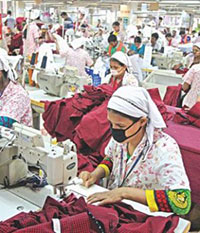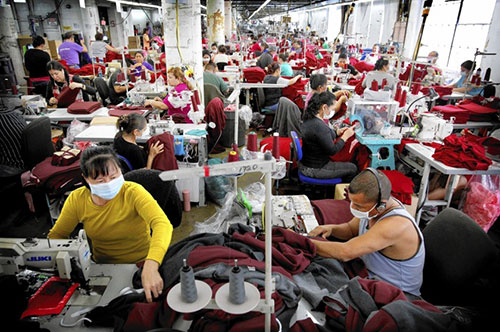"Most brands were willing to share initiatives for promoting living wages. They were also transparent about their limitations in producing in developing countries such as Bangladesh, Cambodia and Vietnam, as the wage-setting mechanisms and social dialogue in these countries are still at a nascent stage"
 Even after a year of Dutch financial institutions forming an unprecedented coalition to demand minimum living wages for workers, the wage landscape still remains a mixed bag with no single solution offered by two brands. A recent review of 13 investee apparel brands by Platform Living Wage Financials’ garment and footwear working group reveals so far only Adidas has improved its transparency initiatives from last year. Now, the brand not only provides an insight into wage structure but also reveals information about collective bargaining in its supply chains and operation of its grievance and remediation mechanisms. The brand also pilots an employee credit cooperative that allows its factory workers to earn extra income through dividends and profit sharing.
Even after a year of Dutch financial institutions forming an unprecedented coalition to demand minimum living wages for workers, the wage landscape still remains a mixed bag with no single solution offered by two brands. A recent review of 13 investee apparel brands by Platform Living Wage Financials’ garment and footwear working group reveals so far only Adidas has improved its transparency initiatives from last year. Now, the brand not only provides an insight into wage structure but also reveals information about collective bargaining in its supply chains and operation of its grievance and remediation mechanisms. The brand also pilots an employee credit cooperative that allows its factory workers to earn extra income through dividends and profit sharing.
Besides, it has created a standard-minute costing system that creates further transparency in the company’s product cost for materials, labor and overhead.
Some other brands surveyed by the group were seen to be in the maturing phase. These include: Asos, Esprit, Gildan, H&M, Inditex (which owns Zara), KappaAhl, Marks & Spencer and Puma. They scored between 20 and 30 points on transparency scale. Four companies scoring between 10 points to 20 points were classified as being in the developing phase. These included Asics, HanesBrands, Renner and VF Corp.
Most brands were willing to share initiatives for promoting living wages. They were also transparent about their limitations in producing in developing countries such as Bangladesh, Cambodia and Vietnam, as the wage-setting mechanisms and social dialogue in these countries are still at a nascent stage. However, the group expressed its desire for more ownership to be taken of living wage by brands, particularly in terms of sharing information from multi-stakeholder initiatives on their websites or annual reports. Similarly, it noted that brands need to move from effort-based reporting to impact-based reporting. Though many of them report about their corporate processes to mitigate human rights, few indicate about their impact on the brand’s operations.
According to the group, a living wage would not only help brands create reliable relationships with their suppliers but also foster a happy and healthy workforce.












